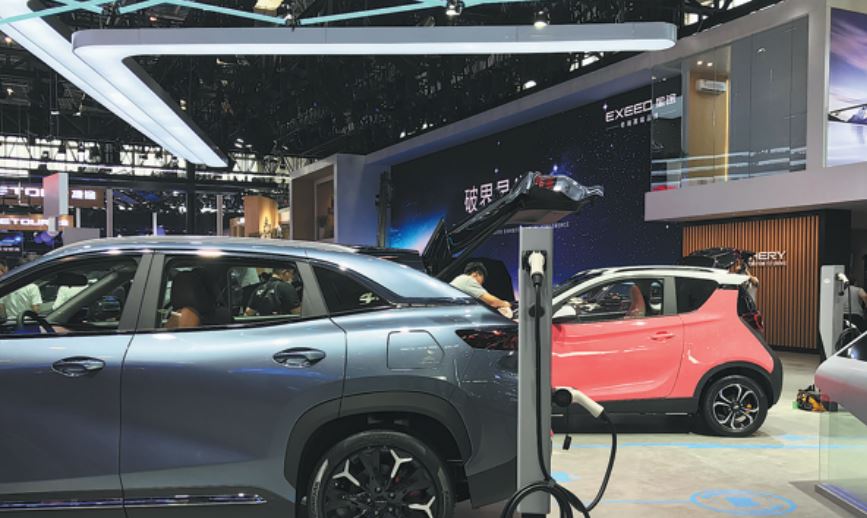Listen to wife to be in top gear as car-buyer

Covering the auto industry in China as a business journalist, you might imagine, must be an exciting job, given that the country has been the world's largest vehicle market since 2009.
Auto journalism sure is as exciting as the latest snazzy, sexy, smart car models. Only, it could all overstimulate your senses as industry news breaks pop up as if they were wild mushrooms.
From launch of new models to setting up of new car plants to announcement of new partnerships to … it could all get heady, hectic and humongous, driving you nuts (see, some autonomous algorithm in the mind could even charge up your vocabulary with the new energy of auto-related verbs and adjectives).
That said, I have to admit the job is becoming demanding, even challenging. That's because the evolution of the sector has acquired dimensions of a revolution, as it shifts gears toward electric models.
Car journalists, therefore, are forced to learn new tricks and broaden their ken. For example, compared with Toyota and GM, Tesla and Nio are more sought-after among industry journalists, and invitations to their product launches are almost coveted, and regarded a status symbol among peers.
As if that were not enough, now Baidu and Apple are going to make cars. And they will build them as the largest personal mobile smart devices. Engines and transmissions are no longer the buzzwords you hear during interviews with industry hotshots. "Mileage anxiety" and "energy density of batteries" have already become passe.
"Chips" and "TOPS" (tera operations per second) are in as autonomous driving speeds up. (Come on now! I chose English as my major because I was not good at math and computers.)
With that confession in the boot, let me change lanes and reveal a personal pain point. My wife complained bitterly the other day that if only I had paid heed to her back in 2017, our life situation would have been different today.
It transpires she had told me to register my name in the waiting list for Beijing's NEV license plates. Had I complied, I'd have received my plate by now. Alas! Luck had evaded me for years in the lottery for gasoline car plates.
So, why was I so disobedient and unwise? Well, much as I'd like to claim expertise in my beat, I've to make another confession: my knowledge of the electric vehicle sector's development wasn't optimal then.
Back then, EVs had short driving ranges and none of the international carmakers had such offerings in the country.
I recall thinking at that time that squandering a journalist's hard-earned money on an EV that would not roll for 200 kilometers in wintry Beijing didn't seem like a smart thing to do. Little did I imagine that within two to three years, cars would be smarter, long-haul, powerful, cleaner, and full of pizzazz.
A lesson was learned the hard way, gentlemen. Between feeling confident about your expertise and your better half's instinct, always-always-let the latter drive you home.
One night last month, Nio unveiled a sedan in Chengdu, Sichuan province. It can run up to 1,000 kilometers on a single charge, features such things as a lidar (a light detection and ranging system akin to radar) and has a computing capacity of 1,024 TOPS that enable it to drive itself under certain conditions.
I wasn't there (despite an early invitation), but I didn't feel shortchanged either. That night, I was reviewing new jargon in my parked car, a rented 2005 Mazda 6.

